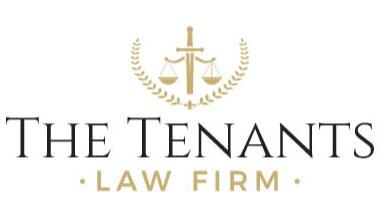Different Types of Eviction Notices in California


There are a number of reasons that your landlord may want to terminate a tenancy, including property damage, nonpayment of rent, or illegal activity. However, prior to ending a tenancy, the landlord must serve the tenant an eviction notice. The type of notice the landlord is required to use depends on their reason for ending the tenancy. If the landlord does not follow these rules, the eviction may not be valid.
Types of Eviction Notices in California
There are different types of eviction notices in the state of California:
-
Three-Day Notice to Pay Rent or Quit
-
Three-Day Notice to Perform Covenants or Quit
-
Three-Day Notice to Quit
-
30-Day or 60-Day Notice to Quit
Three-Day Notice to Pay Rent or Quit
If you are behind on the rent, then your landlord can use a three-day notice to pay the rent or quit. The notice must say exactly how much back rent that you owe, and cannot include any other money that you owe (e.g., late fees, interest, utilities, or damages).
Three-Day Notice to Perform Covenants or Quit
Your landlord can use this kind of notice if you have violated the terms of the lease or rental agreement and you can fix the problem. For example, if you have a pet without permission, or you are not keeping the unit clean, or you are violating some other term of the agreement. The written notice must allow you three days to fix the problem or move out to be valid.
Three-Day Notice to Quit
Your landlord may use this kind of notice if you do things such as:
-
Cause or allow a "nuisance" on the property;
-
Use the rental unit to do something illegal;
-
Do something that threatens the health or safety of other tenants;
-
Commit waste to the property that lowers the value significantly; or
-
Sublease to other tenants without the permission of your landlord.
A three-day notice must be in writing and say everything that you did to break the lease or deserve a three-day notice to leave, including details and dates.
30-Day or 60-Day Notice to Quit
If your landlord wants to end a month-to-month tenancy, they can do so by properly serving you with a 30-day or 60-day eviction notice. If you have been renting for less than one year, the landlord must use a 30-day notice. If you have been renting for more than one year and the landlord wants you to move out, the law requires them to use a 60-day notice. Thirty-day or 60-day notices are also considered no-fault eviction notices.
Landlords are generally not required to give you a reason for ending the tenancy; however, this is not true in rent-controlled cities. A landlord cannot terminate a month-to-month lease for just any reason in rent-controlled cities. Therefore, the notice may violate your rights if you live in a jurisdiction with rent control. To find out if you live in a rent-controlled area, contact your local city or county government office, or talk to a lawyer for help.
90-Day Notice to Quit
If you live in subsidized housing (Section 8), then your landlord must use a 90-day notice to quit. The law requires your landlord to have good reasons, also known as "just cause," to ask you to leave if you are a tenant in subsidized housing.
How Tenant Lawyers Can Help
If you are facing eviction, an experienced tenant lawyer can help you. There are a number of possible defenses that may be available to you so that you are not forced to leave your home, including shoddy paperwork in serving your eviction notice. Contact a Los Angeles tenant lawyer today to see if one of these defenses applies to your situation. Call Tenants Law Firm at (310) 432-3200 or fill out our easy to use online contact form and we will get back to you.
